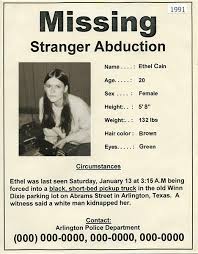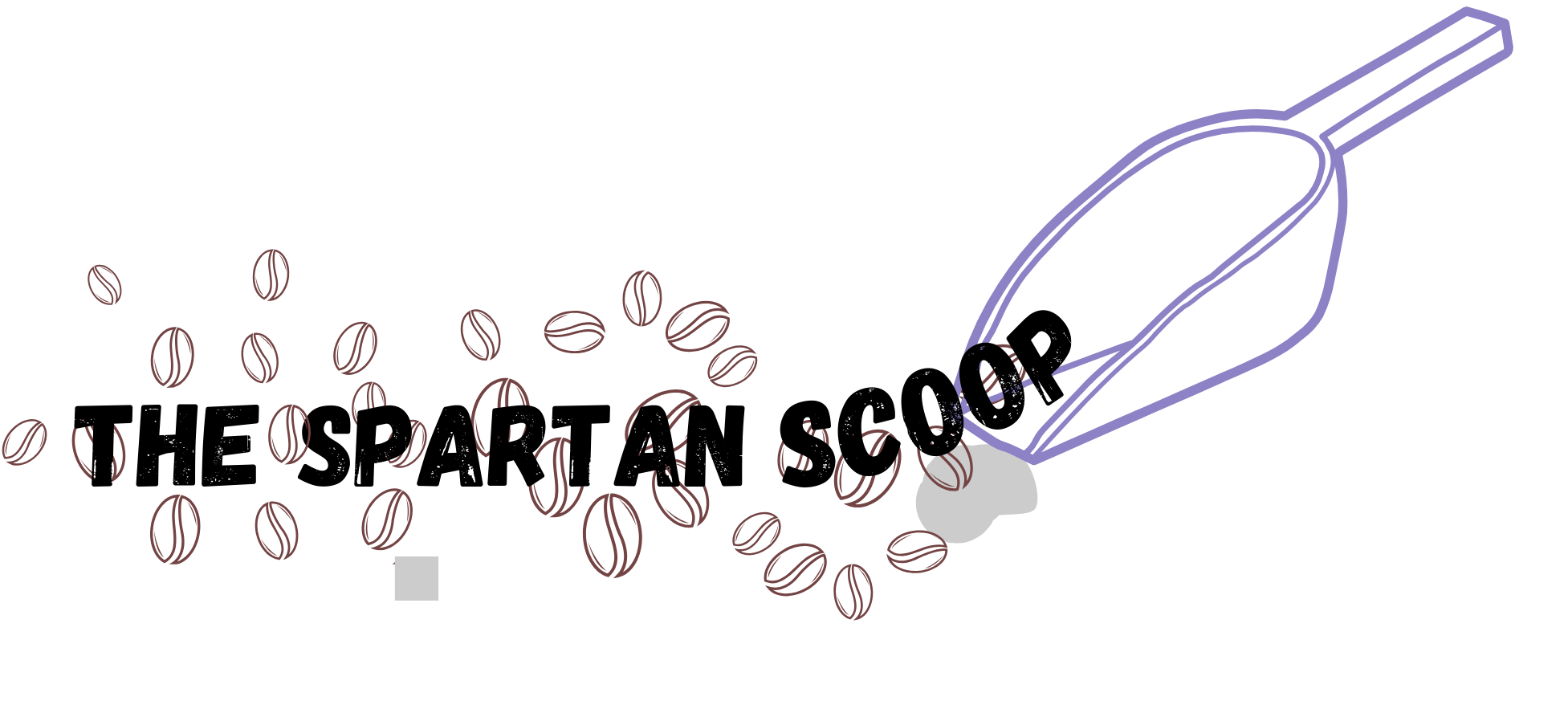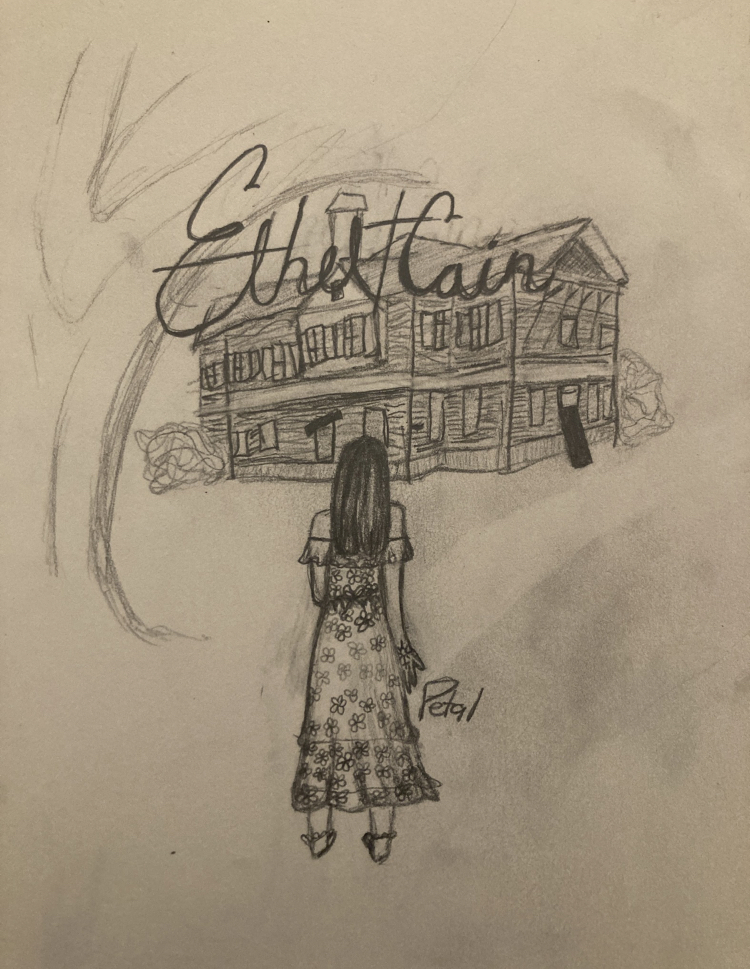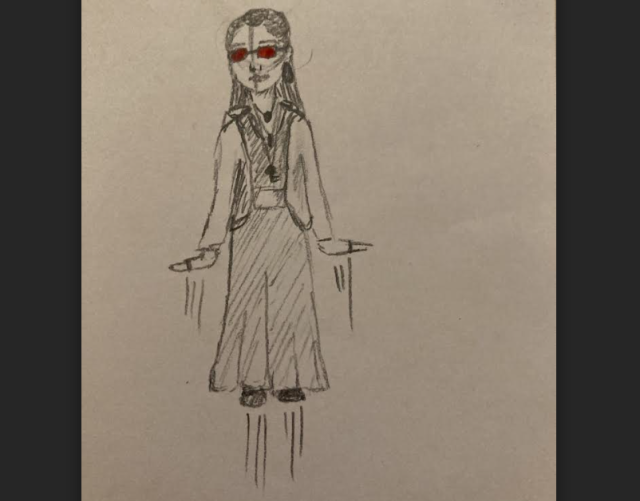Preacher’s Daughter is a concept album by Hayden Anhedönia. It was released under the stage name Ethel Cain. This is an interesting artistic choice, as the album is telling the story of Ethel Cain’s life. She is a fictional character created by Anhedönia that she used to cope with her childhood.
Anhedönia grew up in a religious household, which caused internal conflicts as she is a queer trans woman. To this day, she struggles with what religion means to her.
Ethel Cain is the daughter of an abusive preacher. He was loved by everyone else in the town, and his death is what begins the story told in this album.
Preacher’s Daughter is 13 songs long. Although there’s no confirmation to this theory, the number 13 is considered unlucky, which leads me to believe Anhedönia did this intentionally.
The album begins with “Family Tree (Intro)” This song has a more eerie feel to it, as it starts with the sound of a sermon; however, the voice of the preacher is distorted and distant. Ethel Cain is then introduced, and listeners get a slight peek into her inner turmoil from lines like “These crosses all over my body/ remind me of who I used to be”.
Tell me a story/ about how it ends/ where you’re still the good guy/ and I’ll make pretend
— Hayden Anhedönia
The rest of the album is divided into 2 acts. Act one features six songs.
“American Teen” opens this half of the album. It explores Ethel’s earlier teen years, and focuses on her faith. She sees people struggling and losing their lives in war (most likely the Gulf War as the album begins in 1991), but she excuses it as God’s plan. This is the most stereotypical pop song on the album, with very upbeat music and vocal tones.
“A House in Nebraska” is the next song on the album and it focuses on the story of Willoughby, Ethel’s first love. Throughout the song, she reminisces on their relationship and acknowledges her regrets over hurting Will. The song centers around a house in Nebraska that Ethel and Will used to pretend was theirs. It later comes back, showing just how important it was to Ethel.
As Ethel recovers from her breakup with Will, she meets another man: Logan. Their relationship is revealed in the fourth song on the album “Western Nights”. Logan struggles financially, and becomes a petty criminal, robbing ATMs. This coupling is much more violent than that of Ethel and Will. Logan is a violent person; Ethel sings about him getting into bar fights and showing his love “through shades of black and blue”.
Eventually, Logan’s crimes escalate and he robs a bank. Unfortunately, this ends in a shootout with the police, killing Logan. Ethel, realizing she is an accomplice in armed robbery, runs from the town. This is seen in “Family Tree” which is also the first real insight into what she may have gone through as a child. As she reflects over her relationship with Logan, she draws comparisons to the environment she was raised in.
The full extent of her childhood abuse is revealed in the next song, “Hard Times”. She opens up about her father’s sexual abuse, from her ninth birthday until his death. Reconciling this man with the one who everyone else loves is difficult for Ethel, which is shown through the lyrics “Tell me a story/ about how it ends/ where you’re still the good guy/ and I’ll make pretend”. She doesn’t want to admit that this happened to her, or that her father wasn’t actually the beacon of goodness he was supposed to be. She also struggles with the feeling that it may have been her fault, because “good guys get to be happy” yet she suffers consistently. This is the first sign that the story Ethel’s telling may not be accurate. In reality, she is speaking through a skewed perspective.
The final song of Act 1 is “Thoroughfare”. Ethel meets Isaiah in Texas while he tries to find love in the West. When asked to accompany him, Ethel agrees and they fall in love over the journey.
At this point Anhedönia’s storytelling and attention to detail comes into play. She made supplemental material, and created news articles revealing what actually happened in Texas. Ethel didn’t go willingly with Isaiah, but was instead kidnapped. There are very few lyrics in the song hinting at that ( “Baby, don’t run, I’ll take you anywhere” and “But in these motel rooms, I started to see you differently”), so without seeing the poster, picking up on this fact is difficult.

Act two is only six songs, beginning with “Gibson Girl”. In this song, Isaiah gets Ethel hooked on drugs and begins prostituting her out to pay for more. This song also marks a distinct change in style. Up to this point, the songs have had a more folky feel; however, “Gibson Girl” sounds much more electronic, with distortion and echo on most of the vocals. The backing track is very bass heavy, with very little instrumental outside of percussion. This choice emphasizes the change Ethel is going through as she loses touch with reality, and her past. It also shows Isaiah’s dark side, as the drugs he’s taking begin to cause him to deteriorate.
This deterioration is seen even further in “Ptolemaea”. This title comes from Dante’s Inferno, specifically one of the rings in the Ninth Circle of Hell. In this song, Ethel is severely injured. Throughout the song, she hears a demon speaking to her. There is debate over whether this is Isaiah and the drugs are causing her to hallucinate, or if she’s completely imagining a personification of death speaking to her as she dies. In the song the vocals from Anhedönia are extremely soft and hard to hear, except for one verse where she repeatedly pleads for Isaiah to stop hurting her. Here, her voice gets louder and louder, until she ends on a full out scream. After this, the song ends in whatever is speaking to her monologuing and telling her that she can’t hide.
The next two pieces of music are both fully instrumental, with a few vocalizations, but no real lyrics. “August Underground”, the first of the two, is meant to symbolize Ethel’s death, while “Televangelism” represents her spirit leaving her body and going to the afterlife, whether that be Heaven, or more likely in Ethel’s case, Hell.
“Sun Bleached Flies”, the next song on the album, is Ethel making peace with her death and looking back over her life and mistakes. She regrets leaving her town, and many of the mistakes she made leading up to that. She wishes she’d fought harder, as that was “how [her] daddy raised [her]”. This song also ties in the first act even further, as Ethel wishes she could simply go back to the house in Nebraska.
The final song on the album, “Strangers”, begins with Ethel looking back at her body. She sees Isaiah suffering a mental break from his excessive drug use. He begins to eat Ethel as well as perform certain sexual acts with her body. Even after Isaiah brutalizes her, she asks him if she can still be his. She then thinks of her mother, imagining her finding a missing person’s milk carton of Ethel, and apologizes for leaving her behind. The song ends with Ethel’s goodbye to her mother.
The significance of this ending appears as Hayden discusses what’s next for the album. She reveals in an interview with Alt Press that this is the first in a trilogy about intergenerational trauma, and the next album she releases will be centered around Ethel’s mother.




